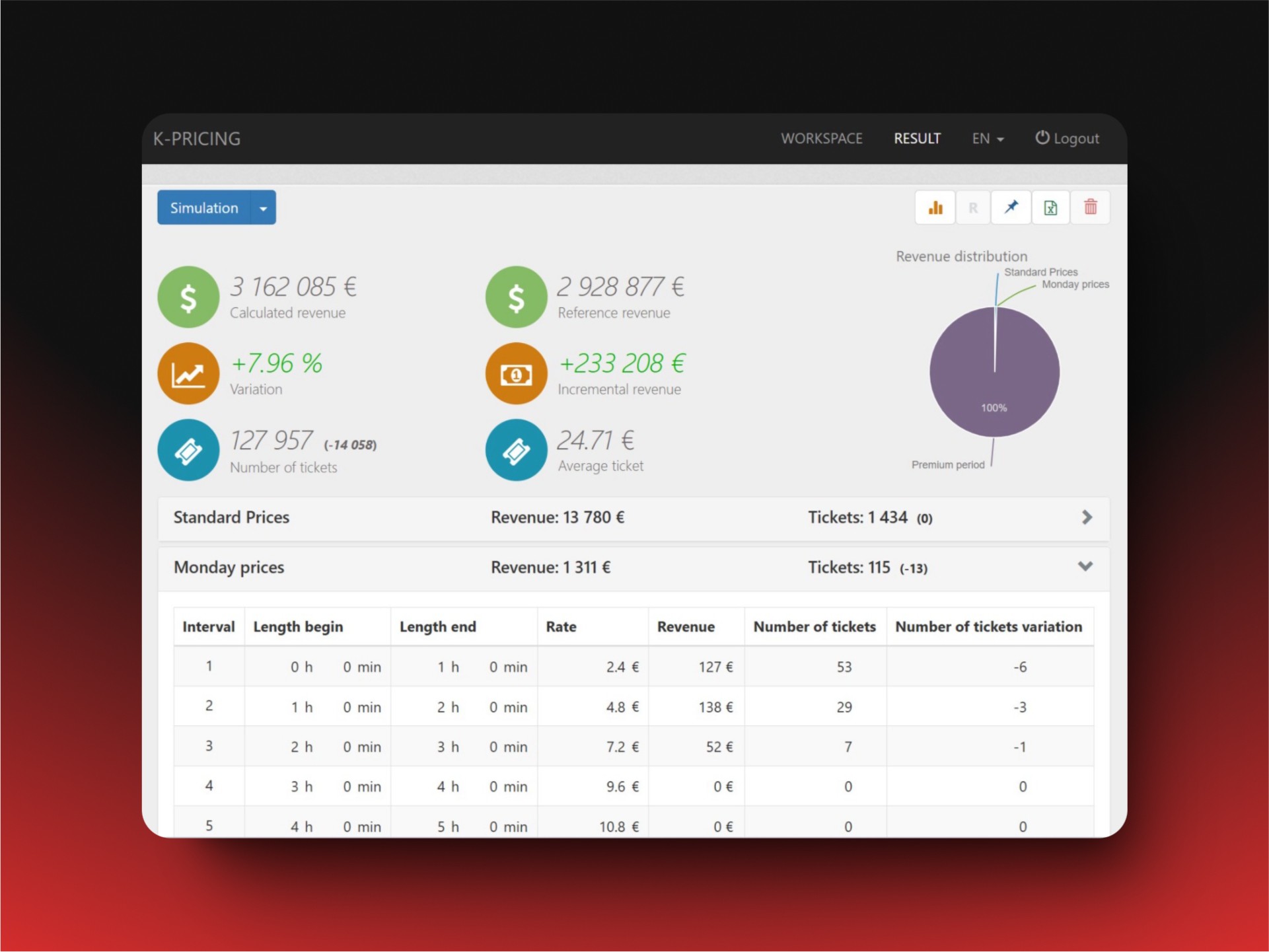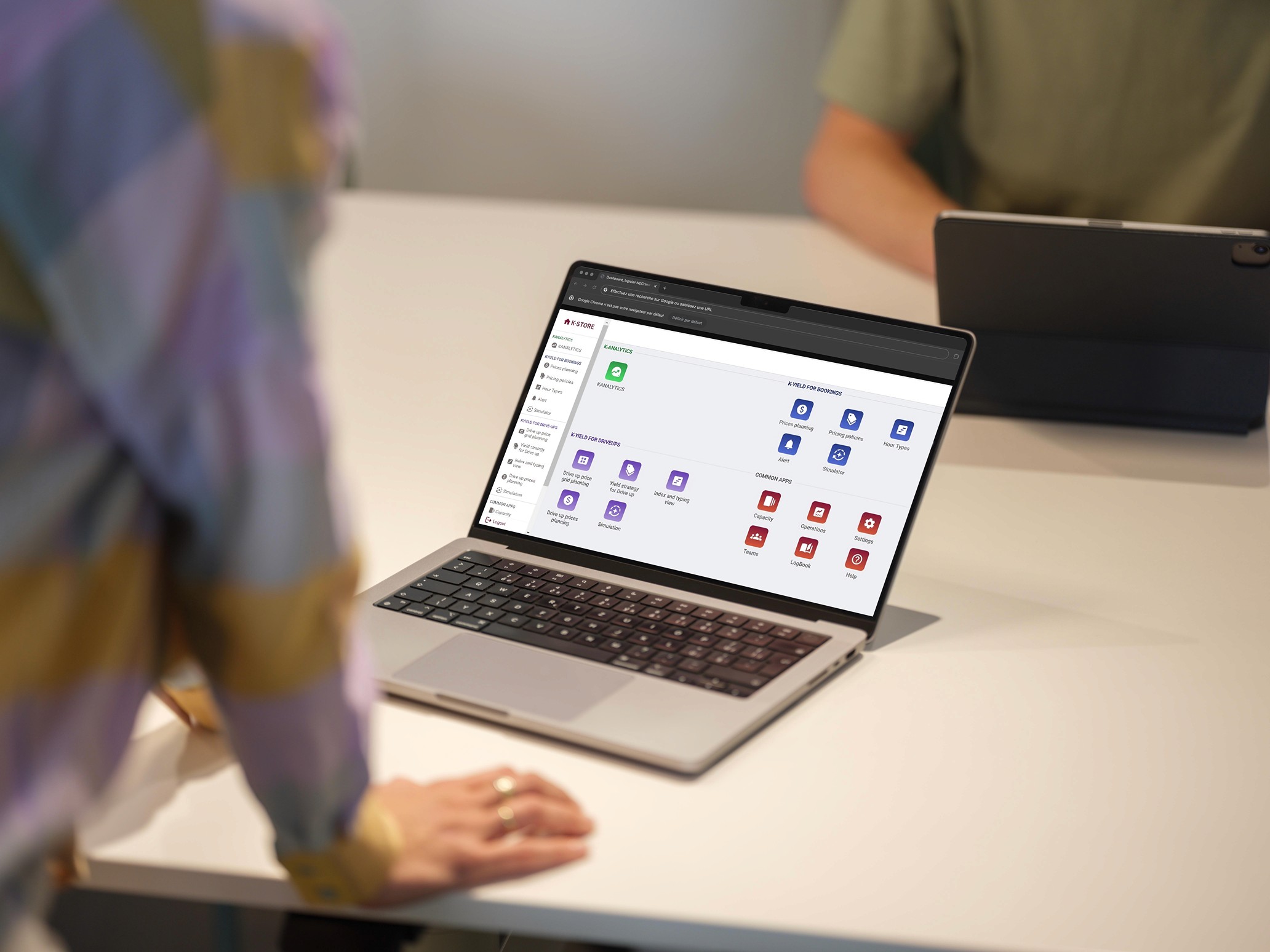See the impact of new pricing policy
Run dozens of pricing simulations based on hundreds of thousands of your past tickets to constantly fine tune and optimize your tariff tables.
Time-saving
With K-Pricing, visualize in seconds the potential impact of pricing policy changes on revenue.
Real-time analysis:
Instantly reprocess past tickets, automatically available, to evaluate the relevance of pricing adjustments.
Revenue optimization
A solution specifically designed to optimize pricing strategies for maximum profitability.
Features of K-Pricing
K-Pricing has been designed with the most sophisticated pricing simulation algorithms to help parking operators fine their (drive-up) pricing policies and achieve off-line parking revenue optimization
Off-line Pricing Simulations
K-Pricing provides instant simulations of pricing policy changes, empowering parking managers to make quick, informed decisions.
Key Pricing Questions Answered
K-Pricing addresses essential questions like:
Should prices change after 1 hour or 45 minutes of stay? Should we introduce seasonal rates or a weekend package?
Impact Analysis on Customer Segments
Understand how changes affect:
• The number of vehicles impacted.
• Customer segments receiving different tariffs.
Additional Revenue estimates
K-pricing estimates the revenue consequences of multiple pricing policy adjustments, helping parking managers find the best revenue-customer satisfaction trade-off.
Behavioral Insights
Analyze client behavior to answer:
• How will demand respond to a price increase of x%?
• What are the most likely client reactions and revenue outcomes?
Simplified Management for Parking Managers
Designed for managers who want to skip complex data sets and Excel sheets, K-Pricing offers a fast, user-friendly solution for pricing optimization.
How K-Pricing
is implemented?
The implementation of K-Pricing takes a few days, depending on the availability of the data:
Phase 1 : Parking Revenue Data Collection
The first phase consists in the integration of 2 or 3 years of past data
Phase 2 : API Setup & Integration
In parallel, the daily API is put in place together with the third party team (gate system provider for ex.)
Phase 3 : Revenue Data Verification
Controls and tests are performed (vs turnover and volume of transactions) to ensure 99.9% accuracy in the data processing aspects (lost tickets, manual counting processes, etc.)
Phase 4 : Optimization Knowledge Transfer
Knowldege transfer is ensured by Kowee teams
Needed data
Data is needed from the equipment system (the “gate”) and/or from the parking e-commerce platform:
Data are transferred daily, or are connected in real-time when K-Yield is put in place;
For each transaction, several data sets are collected: date and time of entry, payment amount, date and time of exit and customer type;
APIs with the most important equipment system providers are available.
Other sources of data can be used such as forecasts of passenger traffics for airports and Kowee also proposes a competition price tracking feature.
Want to understand how dynamic pricing works and why it’s revolutionizing pricing strategies? Read our comprehensive article to learn everything you need to know!
Answer all your questions
Use K-Pricing to get the answers you need.
Want to understand how dynamic pricing works and why it’s revolutionizing pricing strategies? Read our comprehensive article to learn everything you need to know!













